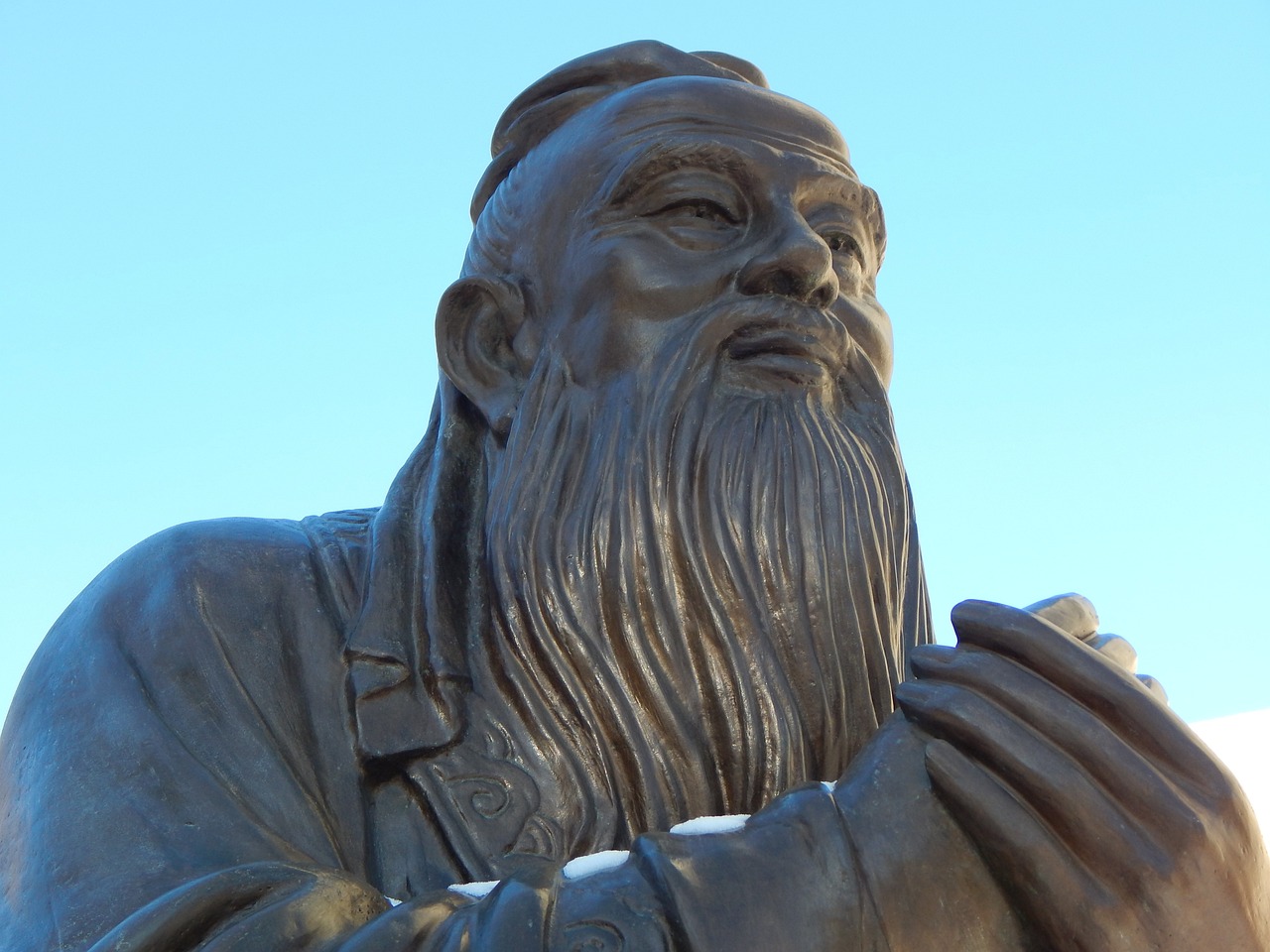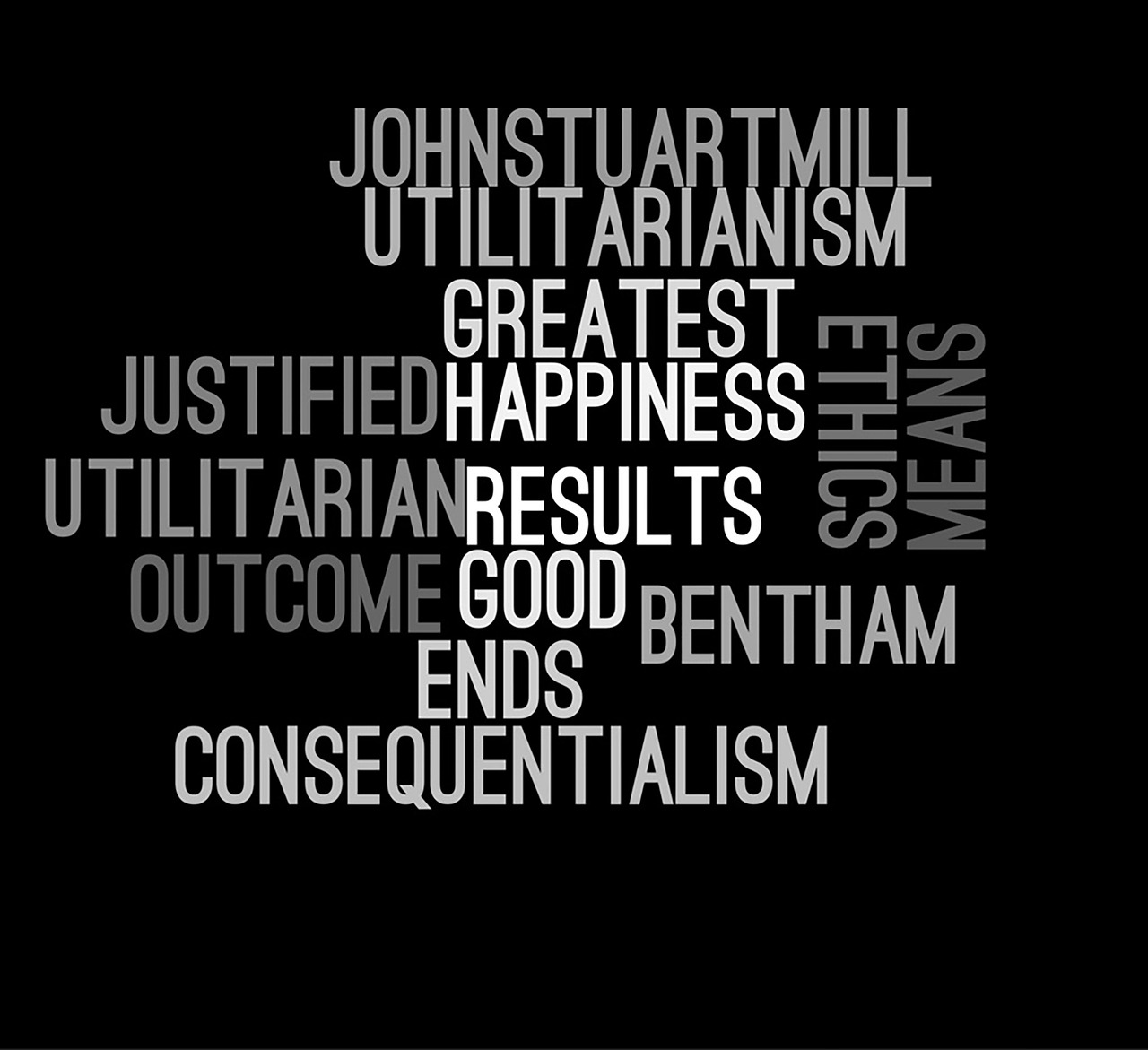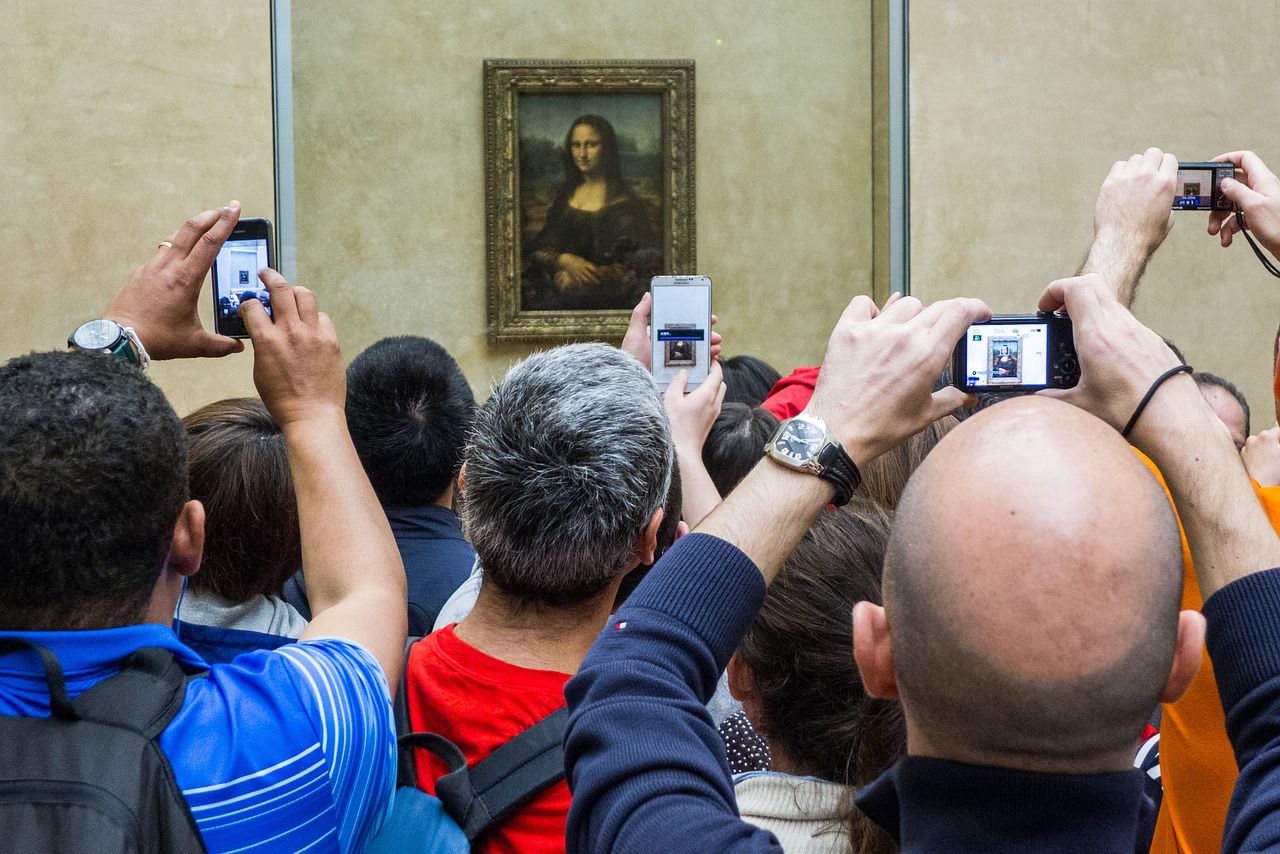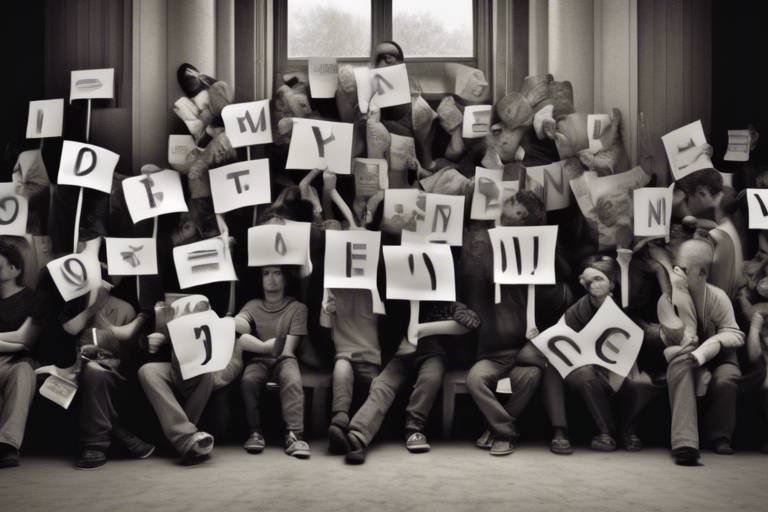Age-Old Philosophical Arguments and Their Relevance Today
Philosophy has been the backbone of human thought for centuries, grappling with the fundamental questions that shape our existence. From the nature of reality to the intricacies of morality, these age-old debates continue to resonate in our modern lives. In a world that often feels chaotic and unpredictable, revisiting these philosophical arguments can offer clarity and guidance. Have you ever wondered how the thoughts of ancient philosophers influence our daily decisions or societal structures? Well, you're not alone! This article will take you on a journey through some of the most profound philosophical inquiries and their implications in today's society.
The relevance of these arguments is not merely academic; they are woven into the fabric of our ethical, political, and existential discussions. Consider how the age-old question of "What is real?" shapes our understanding of technology and virtual realities today. Idealism and realism, two opposing perspectives, continue to inform debates around science, consciousness, and even artificial intelligence. As we navigate an increasingly digital world, these philosophical frameworks compel us to question the essence of our experiences. Are we merely avatars in a digital landscape, or do we possess an authentic existence? The answers may lie in the philosophical debates of the past.
Moreover, as we delve deeper into moral philosophy, the discussions surrounding ethics and morality become even more pertinent. The age-old frameworks of utilitarianism and deontology provide a lens through which we can examine contemporary issues like climate change, healthcare, and social justice. These philosophical discussions are not just theoretical; they have real-world implications that can guide our decision-making processes. For instance, when considering policies that affect the welfare of millions, the question arises: should we prioritize the greatest good for the greatest number, or uphold individual rights regardless of the outcome? This tension between utilitarianism and deontology is a prime example of how ancient philosophical arguments continue to shape our modern ethical landscape.
In essence, engaging with these age-old philosophical debates allows us to reflect on our values and beliefs. By understanding the roots of our moral frameworks, we can better navigate the complexities of modern life. Whether it's grappling with existential questions or determining the ethical implications of our actions, the relevance of these timeless discussions remains profound. So, as we explore the various dimensions of these philosophical arguments, let’s keep in mind their impact on our personal lives and the broader society.
- Why is philosophy still relevant today? Philosophy encourages critical thinking and helps us understand complex issues, making it essential for navigating modern challenges.
- How do ancient philosophical arguments influence contemporary society? They provide frameworks for ethical decision-making, political discourse, and even personal development.
- What are some key philosophical theories that impact our lives? Theories like utilitarianism, deontology, and existentialism shape our understanding of morality, responsibility, and meaning.
- Can philosophy help in everyday decision-making? Yes, philosophical principles can guide us in making choices that align with our values and ethics.

The Nature of Reality
The concept of reality has puzzled philosophers for centuries, igniting debates that stretch back to ancient times. At its core, the question is simple yet profound: What is real? This inquiry leads us down a rabbit hole of perspectives, from idealism, which posits that reality is mentally constructed, to realism, which asserts the existence of an objective reality independent of our perceptions. Each viewpoint offers a unique lens through which we can examine the world around us, influencing not only philosophical discourse but also modern scientific and metaphysical thought.
Idealism, championed by thinkers like George Berkeley, suggests that reality is fundamentally tied to our perceptions. According to this view, objects only exist to the extent that they are perceived. Imagine walking through a forest; the trees, the rustling leaves, and the chirping birds are only "real" because you are experiencing them. This perspective can be comforting, as it implies that reality is shaped by our thoughts and feelings. However, it also raises questions about the existence of the universe when we are not around to observe it.
On the flip side, realism argues that the world exists independently of our perceptions. Philosophers like Aristotle and David Hume have long supported this view, suggesting that our senses, while sometimes deceiving, provide us with a reliable means of understanding the physical world. Consider the analogy of a book: whether you read it or not, the story and characters exist within its pages. This perspective invites us to trust empirical evidence and scientific inquiry, which have led to groundbreaking discoveries about the universe.
As we navigate through these philosophical landscapes, we find that the implications of our understanding of reality extend far beyond abstract discussions. For instance, in the realm of science, the debate between idealism and realism has significant consequences. Theories in quantum physics challenge our traditional notions of reality, suggesting that particles can exist in multiple states until observed. This concept echoes the idealist view, where observation plays a crucial role in defining existence.
Moreover, the nature of reality influences our everyday lives, shaping our beliefs, decisions, and interactions with others. For instance, consider the impact of social media on our perception of reality. Platforms like Instagram and Facebook often present curated versions of life that can distort our understanding of what is "real." This phenomenon raises essential questions about authenticity and the nature of self in a digital age.
To further explore these ideas, let's take a look at a comparison of idealism and realism in a table format:
| Aspect | Idealism | Realism |
|---|---|---|
| Definition | Reality is mentally constructed. | Reality exists independently of perception. |
| Key Philosophers | George Berkeley, Immanuel Kant | Aristotle, David Hume |
| Implications | Subjective experience shapes reality. | Empirical evidence is crucial for understanding reality. |
In conclusion, the nature of reality is a complex tapestry woven from various philosophical threads. Whether we lean towards idealism or realism, one thing is clear: our understanding of what is real profoundly influences how we navigate the world. As we continue to explore these age-old debates, we might find that the quest for understanding reality is not just a philosophical exercise but a vital part of our human experience.
- What is idealism? Idealism is the philosophical belief that reality is mentally constructed and that objects only exist as they are perceived.
- What is realism? Realism asserts that an objective reality exists independently of our perceptions and experiences.
- How does the nature of reality impact modern science? The debate between idealism and realism influences scientific inquiry and our understanding of quantum physics, where observation plays a critical role in defining the state of particles.
- Why is understanding reality important? Our perception of reality shapes our beliefs, decisions, and interactions with others, making it a crucial aspect of the human experience.

Moral Philosophy: Ethics and Morality
Moral philosophy, often referred to as ethics, is the study of what is right and wrong, good and bad, and the principles that govern our behavior. It’s fascinating to think about how these age-old debates continue to resonate in our modern lives. Have you ever found yourself pondering the right course of action in a tricky situation? If so, you're not alone! Many of the ethical dilemmas we face today have their roots in the philosophical inquiries of the past.
At its core, moral philosophy seeks to answer fundamental questions about human conduct. What does it mean to live a good life? How should we treat others? These inquiries are not just academic exercises; they have real-world implications that shape our laws, social norms, and personal relationships. From the ancient Greeks to contemporary thinkers, the exploration of ethics has evolved, yet it remains deeply relevant as we navigate the complexities of modern society.
One of the most compelling aspects of moral philosophy is its diverse frameworks. Each ethical theory offers unique perspectives on how we should approach moral questions. For instance, utilitarianism suggests that the best action is the one that maximizes overall happiness, while deontology posits that some actions are inherently right or wrong, regardless of their consequences. These differing views lead to rich discussions about justice, rights, and the nature of good.
When we compare utilitarianism and deontology, we uncover a fascinating dichotomy in moral reasoning. Utilitarianism, championed by philosophers like Jeremy Bentham and John Stuart Mill, focuses on the outcomes of actions. It asks us to consider the consequences and to act in a way that promotes the greatest good for the greatest number. In contrast, deontological ethics, rooted in the ideas of Immanuel Kant, emphasizes duties and rules. It asserts that certain actions are morally obligatory, regardless of their results.
Imagine a scenario where a politician must decide whether to implement a policy that benefits the majority but may harm a minority. A utilitarian approach would advocate for the policy, as it maximizes overall happiness. However, a deontologist might argue against it, stressing the importance of protecting individual rights. This tug-of-war between the two philosophies illustrates the complexity of ethical decision-making in contemporary issues, especially in fields like healthcare and politics.
Consequentialist thinking, particularly utilitarianism, has significantly influenced modern decision-making processes. Policymakers often weigh the potential benefits and harms of their actions, striving to create laws and regulations that promote societal welfare. For example, when addressing public health crises, authorities might implement measures that prioritize the greater good, such as vaccination campaigns or lockdowns, even if they pose challenges for specific individuals. This practical application of utilitarian principles highlights the ongoing relevance of moral philosophy in shaping our world.
On the other hand, deontological ethics plays a crucial role in the development of human rights legislation. The belief that every individual possesses inherent rights that must be respected and protected is deeply rooted in deontological thought. This perspective has influenced international treaties and national laws, emphasizing that certain actions—like torture or discrimination—are fundamentally wrong, regardless of the consequences. As we navigate contemporary discussions about justice and equality, the principles of deontology remind us of our moral obligations to one another.
Another significant branch of moral philosophy is virtue ethics, which emphasizes the importance of character and moral virtues in personal development. Rather than focusing solely on rules or consequences, virtue ethics encourages individuals to cultivate traits like honesty, courage, and compassion. In a world often driven by results, this approach serves as a reminder that the journey of becoming a good person is just as important as the outcomes of our actions.
In modern educational practices, there is a growing recognition of the need to foster character development alongside academic achievement. Schools and communities are increasingly emphasizing the cultivation of virtues, which can lead to a more compassionate and ethical society. After all, what good is knowledge without the wisdom to use it for the benefit of others?
- What is moral philosophy? Moral philosophy, or ethics, is the study of what is right and wrong, guiding our actions and decisions.
- What are the main ethical theories? The main ethical theories include utilitarianism, deontology, and virtue ethics, each offering different perspectives on moral decision-making.
- How does ethics apply to modern society? Ethics informs our laws, social norms, and personal relationships, helping us navigate complex moral dilemmas.
- Why is virtue ethics important? Virtue ethics emphasizes character development and moral virtues, contributing to personal growth and societal well-being.

Utilitarianism vs. Deontology
When we dive into the realm of ethics, two heavyweights often come to the forefront: Utilitarianism and Deontology. These two ethical theories offer contrasting perspectives on how we should approach moral dilemmas, and understanding their differences is crucial for navigating the complexities of today's world. At its core, utilitarianism is about the consequences of our actions. It posits that the best action is the one that maximizes overall happiness or utility. Imagine you're at a party, and there’s a cake. If you eat the last piece, it brings you joy, but it leaves everyone else disappointed. A utilitarian would weigh this decision based on the total happiness generated. If your joy outweighs the collective disappointment, then, according to this theory, it’s the right choice. However, this can lead to some tricky situations where the ends justify the means, raising questions about fairness and justice.
On the flip side, we have deontology, which emphasizes duty and rules over the consequences of actions. Think of it as a strict parent who insists on following the rules no matter what. Deontologists argue that some actions are inherently right or wrong, regardless of their outcomes. For instance, lying is considered wrong, even if it might lead to a better outcome for someone. This perspective is rooted in the belief that moral principles should guide our actions, not just the results they produce. In a world where we often face decisions that pit rules against outcomes, deontology provides a framework that champions integrity and moral duty.
To illustrate the differences between these two theories, let’s take a look at a simple table:
| Aspect | Utilitarianism | Deontology |
|---|---|---|
| Focus | Consequences of actions | Inherent morality of actions |
| Moral Decision | Maximize overall happiness | Follow moral rules |
| Example | Stealing medicine to save a life | Never steal, even to save a life |
Both theories have their strengths and weaknesses. Utilitarianism is often praised for its practicality and ability to adapt to different situations, making it appealing in fields like politics and healthcare, where outcomes can significantly impact lives. However, critics argue that it can lead to morally questionable decisions, such as sacrificing one for the greater good. Deontology, on the other hand, provides a strong moral compass, ensuring that individuals uphold their duties and responsibilities. Yet, its rigidity can sometimes overlook the nuanced realities of real-life situations where flexibility might be necessary.
As we navigate the murky waters of modern ethical dilemmas, understanding the tug-of-war between utilitarianism and deontology can help us make more informed decisions. Whether it’s in discussions about public policy, healthcare, or personal relationships, recognizing these two perspectives allows us to appreciate the complexities of morality and the importance of context in our decision-making processes.
- What is the main difference between utilitarianism and deontology? Utilitarianism focuses on the outcomes of actions, while deontology emphasizes the morality of the actions themselves.
- Can you provide an example of utilitarianism in real life? An example would be a government deciding to implement a policy that benefits the majority, even if it negatively impacts a minority.
- Why is deontology considered more rigid than utilitarianism? Deontology adheres strictly to moral rules, regardless of the consequences, which can sometimes lead to outcomes that seem unjust or impractical.

Consequentialism in Modern Decision-Making
Consequentialism, at its core, is a moral philosophy that posits that the outcomes of actions are the primary basis for any judgment about the rightness or wrongness of those actions. This perspective has found its way into various aspects of modern decision-making, influencing everything from government policies to personal choices. Imagine a world where every decision you make is weighed against its potential consequences; that’s the essence of consequentialist thought. This approach encourages us to think about the broader impact of our actions, urging us to consider not just what we do, but how those actions will ripple through society.
In contemporary society, consequentialism is often reflected in policy-making processes. For instance, when governments create laws or regulations, they frequently conduct cost-benefit analyses to predict the outcomes of their decisions. This method not only helps in maximizing positive results but also in minimizing negative effects. Take, for example, environmental policies aimed at reducing carbon emissions. Policymakers must weigh the potential benefits of cleaner air and a healthier planet against the economic costs of implementing such measures. This balancing act is a classic illustration of consequentialist thinking in action.
Moreover, consequentialism has permeated the healthcare sector, particularly in the allocation of resources. Medical professionals often face dilemmas where they must decide how to allocate limited resources, such as organ transplants or funding for treatments. In these situations, the principle of maximizing overall well-being often guides their decisions. For example, if a doctor has to choose between treating two patients, they might consider which patient has a higher chance of recovery and a better quality of life post-treatment. This approach underscores the practical applications of utilitarian principles, as healthcare providers strive to achieve the greatest good for the greatest number.
However, while consequentialism offers a clear framework for decision-making, it is not without its criticisms. One major concern is that it can lead to morally questionable outcomes if the ends are deemed to justify the means. For instance, if sacrificing one person could save many others, a strict consequentialist might argue that such an action is justified. This raises profound ethical questions about the value of individual lives and the morality of making decisions based solely on outcomes. Thus, while consequentialism provides valuable insights into modern decision-making, it also necessitates a careful examination of its implications and potential pitfalls.
In summary, consequentialism plays a crucial role in shaping modern decision-making across various fields. Its emphasis on outcomes encourages a forward-thinking approach that seeks to maximize benefits while minimizing harm. However, as we navigate the complexities of ethical dilemmas, it's essential to remain vigilant about the potential consequences of prioritizing results over moral principles. After all, in a world filled with intricate choices, the challenge lies not just in making decisions, but in making the right ones.
- What is consequentialism? Consequentialism is a moral philosophy that evaluates the rightness or wrongness of actions based on their outcomes.
- How does consequentialism apply to modern decision-making? It influences various sectors, including government policy and healthcare, by encouraging decision-makers to consider the broader impacts of their actions.
- What are the criticisms of consequentialism? Critics argue that it can justify morally questionable actions if the outcomes are deemed beneficial, raising ethical concerns about individual rights and values.

Deontological Ethics and Human Rights
When we talk about deontological ethics, we're diving into a moral framework that emphasizes duties and rules over the consequences of actions. This philosophy, rooted in the works of Immanuel Kant, posits that certain actions are intrinsically right or wrong, regardless of their outcomes. But how does this relate to our understanding of human rights? Well, it turns out that deontological ethics plays a pivotal role in shaping the principles that underpin human rights legislation around the globe.
At its core, deontological ethics asserts that individuals possess inherent rights simply by being human. This belief is crucial in advocating for human rights because it establishes a moral baseline that transcends cultural and societal differences. For instance, the notion that everyone has the right to life, freedom, and dignity is a deontological stance that demands respect and protection irrespective of the consequences that might arise from upholding these rights.
Consider the following key aspects of how deontological ethics intersects with human rights:
- Universalizability: Kant's principle of universalizability posits that an action is only morally right if it can be applied universally. This idea underpins the concept of human rights, as it argues that if one person has a right, then everyone must have that right.
- Respect for Persons: Deontological ethics insists on treating individuals as ends in themselves, not merely as means to an end. This respect for human dignity is foundational to human rights, which advocate for the protection of individuals against exploitation and abuse.
- Moral Absolutism: Deontological ethics often aligns with the belief in absolute moral rules. For example, the prohibition against torture is upheld as a fundamental human right, regardless of potential justifications that might arise in specific situations.
In contemporary society, the implications of deontological ethics are profound, especially in discussions surrounding human rights violations. When we witness atrocities such as genocide or systemic discrimination, it is the deontological perspective that compels us to take a stand, asserting that these actions are morally indefensible, irrespective of any potential benefits that might be claimed. This unwavering stance is crucial for activists and policymakers alike, as it provides a moral compass guiding efforts to protect and promote human rights globally.
Moreover, deontological ethics encourages us to reflect on our responsibilities toward others. It asks us not only to advocate for our rights but also to recognize the rights of those around us. This reciprocal recognition fosters a culture of respect and accountability, which is essential for a just society. In essence, by grounding our understanding of human rights in deontological ethics, we cultivate a framework that not only protects individuals but also promotes a collective moral responsibility.
In conclusion, deontological ethics serves as a vital pillar in the architecture of human rights. It challenges us to uphold the dignity and rights of every individual, advocating for a world where respect for human rights is not merely aspirational but a lived reality. As we navigate the complexities of modern ethical dilemmas, let us remember that the fight for human rights is fundamentally a fight for our shared humanity, guided by the unwavering principles of deontological ethics.
- What is deontological ethics? Deontological ethics is a moral philosophy that focuses on the inherent rightness or wrongness of actions, regardless of their consequences.
- How does deontological ethics relate to human rights? Deontological ethics emphasizes the intrinsic rights of individuals, forming the basis for universal human rights that demand respect and protection.
- Why is universalizability important in human rights? Universalizability ensures that if one individual has a right, then all individuals must have that right, promoting equality and justice.
- Can deontological ethics justify human rights violations? No, deontological ethics argues against human rights violations, asserting that certain actions are morally wrong regardless of the circumstances.

Virtue Ethics and Character Development
When we think about ethics, one of the most compelling frameworks that often comes to mind is virtue ethics. This approach emphasizes the importance of character and the cultivation of virtues as the foundation for ethical behavior. Unlike other ethical theories that focus primarily on rules or consequences, virtue ethics invites us to consider who we are as individuals and how our character shapes our actions. It’s like building a house: the virtues are the sturdy bricks that hold everything together, while the actions are the beautiful decorations that make the house a home.
At its core, virtue ethics asks us to reflect on questions such as: What kind of person do I want to be? What virtues should I cultivate to live a good life? This introspection is not just philosophical; it has real-world implications. For instance, in modern educational practices, there is a growing emphasis on character development alongside academic achievement. Schools are increasingly recognizing that teaching students about virtues like honesty, courage, and empathy is just as important as teaching them math or science. After all, a well-rounded education prepares students not only for exams but also for life.
Moreover, virtue ethics encourages us to look at role models in our lives—those individuals who exemplify the virtues we aspire to embody. Whether it’s a mentor, a historical figure, or even a fictional character, these role models serve as a mirror reflecting the virtues we wish to develop. They provide us with a tangible example of how virtuous behavior manifests in everyday situations. Imagine a teacher who embodies patience and kindness; their actions not only shape their students but also inspire those around them to cultivate similar virtues.
One of the most fascinating aspects of virtue ethics is its emphasis on the community. Virtues are often developed through social interactions and relationships. For instance, engaging in community service helps foster virtues like compassion and generosity. It’s through these shared experiences that individuals learn the importance of contributing positively to society. In this sense, virtue ethics isn’t just about individual character development; it’s about creating a ripple effect that can lead to a more virtuous community.
However, the journey of developing virtues is not without its challenges. It requires consistent effort and a willingness to confront our shortcomings. Just as a gardener must tend to their plants regularly to ensure they grow, we too must actively cultivate our virtues. This might involve setting personal goals, seeking feedback from others, or even reflecting on our daily experiences to identify areas for improvement.
Ultimately, the relevance of virtue ethics in contemporary society cannot be overstated. As we navigate an increasingly complex world filled with ethical dilemmas, the focus on character and virtue offers a refreshing perspective. It reminds us that ethics is not merely a set of rules to follow but rather a lifelong journey of personal growth and development. In this light, we can see that virtue ethics is not just a relic of philosophical thought; it’s a vital framework that guides us in becoming better individuals and, by extension, a better society.
- What are some key virtues in virtue ethics? Common virtues include honesty, courage, compassion, and integrity.
- How does virtue ethics differ from other ethical theories? Unlike consequentialism or deontology, virtue ethics focuses on the character of the moral agent rather than rules or outcomes.
- Can virtue ethics be applied in modern education? Yes, many educational institutions are incorporating character education to foster virtues in students.
- Who are some philosophers associated with virtue ethics? Notable figures include Aristotle, Confucius, and more recently, Alasdair MacIntyre.

Existentialism and the Quest for Meaning
Existentialism is a philosophical movement that dives deep into the murky waters of human existence, probing questions that many of us ponder at some point in our lives. What is the meaning of life? Why do we exist? These profound inquiries are not just academic; they resonate with our daily experiences and struggles. Philosophers like Jean-Paul Sartre and Albert Camus have explored these themes extensively, offering insights that are as relevant today as they were in the mid-20th century. Their works challenge us to confront the absurdity of life and to find our own meaning in a universe that often seems indifferent to our struggles.
At its core, existentialism posits that life has no inherent meaning, and it is up to each individual to create their own purpose. This idea can be both liberating and daunting. Imagine standing at the edge of a vast, empty landscape, the weight of the world on your shoulders. You realize that no one can dictate your path; the choices you make are entirely yours. This freedom, however, comes with the burden of responsibility. As Sartre famously stated, "existence precedes essence," meaning that we are not born with a predefined purpose; rather, we must forge our own identity through our actions.
One of the most compelling aspects of existentialism is its focus on the absurd. Camus, in particular, delves into this concept in his essay "The Myth of Sisyphus," where he likens human existence to the plight of Sisyphus, who is condemned to roll a boulder up a hill only to watch it roll back down for eternity. This metaphor illustrates the struggle against the absurdity of life, a struggle that many of us can relate to in our daily routines. Yet, rather than succumbing to despair, Camus encourages us to embrace this absurdity, to find joy and meaning in the struggle itself. After all, if life is inherently meaningless, then we have the freedom to define what it means to us.
So, how do we cultivate resilience in the face of this absurdity? It often involves a conscious effort to engage with our experiences, to seek out moments of connection and joy, and to confront our fears head-on. Here are a few strategies that can help:
- Practice mindfulness: Being present in the moment can help us appreciate the beauty of life, even in its chaos.
- Build connections: Forming meaningful relationships can provide a sense of belonging and purpose.
- Embrace creativity: Engaging in creative pursuits can be a powerful way to express ourselves and find personal meaning.
Furthermore, existentialism emphasizes the importance of freedom and responsibility. In a world where we often feel constrained by societal norms and expectations, existentialist thought encourages us to break free from these shackles and take ownership of our choices. This balance between freedom and responsibility is crucial in discussions about social justice and individual accountability. When we acknowledge that our actions have consequences, we are more likely to strive for a life that reflects our values and beliefs.
In summary, existentialism invites us to grapple with the complexities of our existence and to find meaning in our individual journeys. It challenges us to confront the absurdity of life, to embrace our freedom, and to take responsibility for our choices. As we navigate the twists and turns of our lives, let us remember that the quest for meaning is not a destination but an ongoing journey—one that is uniquely ours.
- What is existentialism? Existentialism is a philosophical movement that explores the nature of existence, freedom, and the search for meaning in a seemingly indifferent universe.
- Who are the key figures in existentialism? Prominent existentialist philosophers include Jean-Paul Sartre, Albert Camus, and Friedrich Nietzsche.
- How does existentialism relate to modern life? Existentialist themes such as the search for meaning, personal responsibility, and the confrontation of absurdity are highly relevant in today's fast-paced and often chaotic world.

The Absurd and Human Resilience
The concept of the absurd, as articulated by existentialist philosophers like Albert Camus, presents a fascinating lens through which we can examine the human condition. Life, in its essence, often feels chaotic and devoid of inherent meaning. This realization can be daunting, but it also opens the door to profound resilience. Think about it: when faced with the absurdity of existence, we have two choices—succumb to despair or embrace our freedom to create meaning. This dichotomy is what makes the exploration of the absurd so compelling.
Camus famously illustrated this struggle through the myth of Sisyphus, a figure condemned to roll a boulder up a hill only for it to roll back down each time he reaches the top. This endless cycle symbolizes the futility many feel in their daily lives. However, Camus argues that we must imagine Sisyphus as happy, suggesting that the acknowledgment of the absurd can lead to a form of liberation. When we accept that life may not come with a pre-packaged purpose, we can start to carve out our own paths, finding joy in the struggle itself.
Moreover, the absurd teaches us about human resilience. In a world that often seems indifferent to our desires and struggles, the ability to confront the absurdity of existence can strengthen our resolve. It encourages us to cultivate resilience by recognizing that while we cannot control external circumstances, we can control our reactions to them. This perspective is particularly relevant in today's fast-paced, often overwhelming society, where individuals face various existential challenges.
In practical terms, embracing the absurd can manifest in various ways:
- Mindfulness: Staying present in the moment can help individuals find joy in small experiences, countering feelings of futility.
- Creativity: Engaging in creative pursuits allows individuals to express their interpretations of the absurd, transforming chaos into art.
- Community: Building connections with others who share similar struggles fosters a sense of belonging, reminding us that we are not alone in our quest for meaning.
Ultimately, the absurd challenges us to redefine our understanding of success and happiness. Instead of seeking external validation or a grand purpose, we can find fulfillment in the journey itself. This philosophy resonates deeply in contemporary discussions about mental health and well-being, as more people recognize the importance of resilience in overcoming life's challenges. The absurd, rather than being a source of despair, can become a catalyst for personal growth and authentic living.
As we navigate the complexities of modern life, let us remember that embracing the absurd may not provide all the answers, but it equips us with the tools to confront our realities with courage and creativity. The resilience that comes from this acceptance is not just a survival mechanism; it is a celebration of our humanity.
- What is the absurd according to existentialism?
The absurd refers to the conflict between humans' desire for meaning and the indifferent universe that offers none. It highlights the struggle to find purpose in a chaotic world. - How can embracing the absurd lead to resilience?
By acknowledging the absurdity of life, individuals can focus on creating their own meaning and finding joy in the struggle, which fosters resilience. - Who are some key philosophers associated with the concept of the absurd?
Albert Camus is the most notable figure, but other existentialists like Jean-Paul Sartre also explore themes related to the absurd. - What are practical ways to cope with feelings of absurdity?
Practices such as mindfulness, engaging in creative activities, and fostering community connections can help individuals cope with the feelings of absurdity.

Freedom and Responsibility
When we think about freedom, it often conjures up images of liberation, choice, and the ability to act without constraints. However, this freedom is not merely an absence of restrictions; it comes with an equally important counterpart: responsibility. The relationship between these two concepts is intricate, and understanding it is crucial in our modern society. Have you ever considered how your choices impact not just your life but also the lives of others? This interdependence is at the heart of existentialist thought, where philosophers like Jean-Paul Sartre argued that with great freedom comes great responsibility.
In today’s world, the balance between freedom and responsibility is often tested. For instance, in democratic societies, individuals are granted the freedom to express their opinions, but this freedom can lead to conflicts when those opinions clash with others. The challenge lies in navigating these conflicts while maintaining respect for differing viewpoints. As Sartre famously said, “Man is condemned to be free; because once thrown into the world, he is responsible for everything he does.” This quote encapsulates the essence of existentialist philosophy, reminding us that our choices define us, and we must bear the weight of those choices.
Moreover, the concept of social responsibility is increasingly relevant in discussions about personal freedom. Consider the following aspects:
- Environmental Responsibility: Our freedom to consume and use resources has a direct impact on the environment. With climate change becoming a pressing issue, individuals are called to act responsibly, balancing their freedom to enjoy modern conveniences with the need to protect our planet.
- Digital Responsibility: In the age of social media, freedom of speech allows us to share our thoughts widely. However, this freedom also comes with the responsibility to avoid spreading misinformation and to engage respectfully with others online.
- Community Engagement: Freedom extends beyond personal choices; it encompasses our role in the community. Engaging in civic duties, such as voting and volunteering, reflects our commitment to the well-being of society, highlighting the interconnectedness of freedom and responsibility.
As we navigate our lives, it’s essential to recognize that our freedoms are not absolute; they exist within a framework of societal norms and ethical considerations. The choices we make can have far-reaching consequences, shaping not only our destinies but also the fabric of our communities. In this sense, freedom and responsibility are two sides of the same coin, each enriching the other. By embracing both, we cultivate a more harmonious society where individual rights are respected, and collective well-being is prioritized.
Q1: How can I balance my personal freedom with my responsibilities to others?
A1: Balancing personal freedom with responsibilities involves self-reflection and consideration of the impact of your actions on others. Engage in open dialogues, listen to different perspectives, and strive to make choices that benefit both yourself and your community.
Q2: What role does education play in understanding freedom and responsibility?
A2: Education is crucial in fostering an understanding of freedom and responsibility. It encourages critical thinking, ethical reasoning, and awareness of social issues, empowering individuals to make informed decisions that reflect both their rights and duties.
Q3: Can freedom ever be absolute?
A3: Freedom is rarely absolute, as it exists within the context of laws, ethics, and social norms. Absolute freedom can lead to chaos; thus, a balance with responsibility is essential for a functioning society.
Frequently Asked Questions
- What is the nature of reality according to philosophical debates?
The nature of reality has been a pivotal question in philosophy, with various schools of thought offering differing perspectives. Idealism posits that reality is fundamentally mental, while realism argues that the world exists independently of our perceptions. This debate shapes modern scientific inquiry and metaphysical discussions, prompting us to consider how our understanding of reality influences our everyday lives.
- How do age-old moral philosophies impact contemporary ethical discussions?
Age-old moral philosophies, such as utilitarianism and deontology, continue to inform our understanding of ethics today. These frameworks provide a foundation for navigating complex moral dilemmas, from political decisions to healthcare policies. By examining the strengths and weaknesses of these theories, we can better understand how they guide our judgments about right and wrong in a rapidly changing world.
- What are the main differences between utilitarianism and deontology?
Utilitarianism focuses on the consequences of actions, advocating for choices that maximize overall happiness. In contrast, deontology emphasizes adherence to moral rules and duties, regardless of the outcomes. Understanding these differences is crucial for making informed ethical decisions, particularly in fields like politics and healthcare, where the stakes are high and the dilemmas complex.
- How does consequentialism influence modern decision-making?
Consequentialism, particularly utilitarianism, plays a significant role in modern decision-making processes. Policymakers often weigh the potential outcomes of their actions to ensure the greatest good for the greatest number. This approach can be seen in various areas, such as public health initiatives and environmental policies, where the implications of decisions can have far-reaching effects on society.
- What is the importance of deontological ethics in human rights?
Deontological ethics emphasizes the intrinsic value of human rights, asserting that certain actions are morally obligatory regardless of their consequences. This framework has significantly shaped human rights legislation, ensuring that individuals are treated with dignity and respect. By understanding the principles of deontology, we can better advocate for moral responsibilities in contemporary society.
- How does virtue ethics relate to personal development?
Virtue ethics highlights the importance of character and moral virtues in personal development. It encourages individuals to cultivate traits such as honesty, courage, and compassion, which contribute to both personal growth and societal well-being. This philosophy is increasingly integrated into modern educational practices, emphasizing character education alongside academic achievement.
- What insights does existentialism provide regarding the search for meaning?
Existentialism, as explored by philosophers like Sartre and Camus, confronts the inherent meaninglessness of life. It encourages individuals to find their own meaning through personal choices and actions. This perspective is particularly relevant today, as many grapple with existential crises and seek purpose in an often chaotic world.
- How do concepts of the absurd and resilience connect in existential thought?
The concept of the absurd, which highlights the conflict between our search for meaning and the indifferent universe, underscores the importance of human resilience. By acknowledging life's inherent challenges, individuals can cultivate the strength to confront difficulties, fostering a sense of purpose and determination in the face of adversity.
- What role does freedom play in existentialist discussions of responsibility?
Existentialist thought emphasizes the balance between freedom and responsibility, asserting that true freedom comes with the burden of accountability for one's choices. This idea resonates in contemporary discussions on social justice, where personal responsibility is intertwined with the broader implications of our actions within society.



















